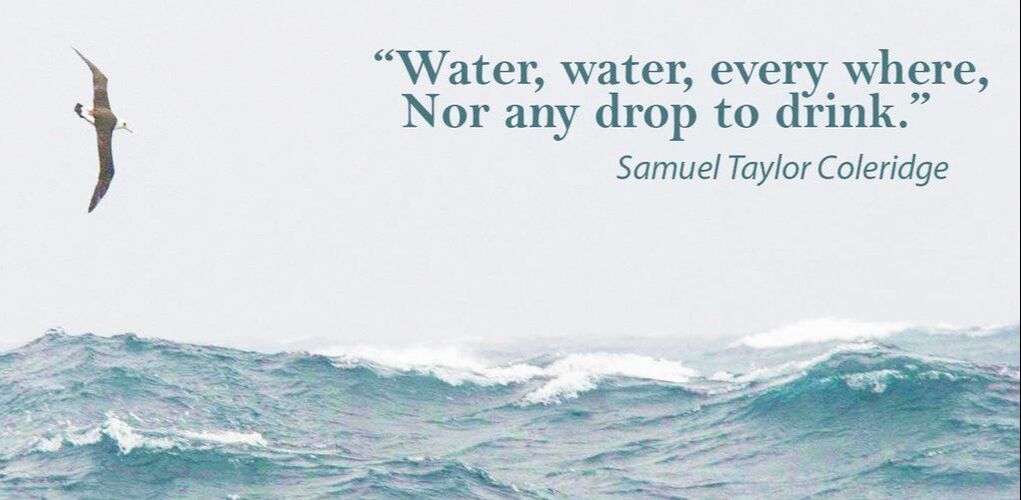2.5 - How to Drink Seawater?
Objectives:
- Understand why you cannot successfully drink seawater.
- Know the two methods to extract freshwater from seawater - distillation and reverse osmosis.
|
According to Coleridge, the Ancient Mariner was frustrated by being surrounded by water that he could not drink. The moral of the story being, of course, don't go shooting at wandering albatrosses. When crossing the ocean in a sailing yacht, we were advised that we could wash in fresh water as long as we were prepared to drink salt water. Fresh water is a precious resource.
We cannot survive for long without it. This means that the ocean is a wilderness that is inhospitable to humans. Fish and turtles don't seem to have the same problem though. |
|
|
|
Questions to ponder:
Why exactly do we need to drink fresh water?
What happens if we try to drink seawater when we are thirsty?
How does Bermuda meet its demands for fresh water?
Why exactly do we need to drink fresh water?
What happens if we try to drink seawater when we are thirsty?
How does Bermuda meet its demands for fresh water?
Activities:
- Distill seawater to produce fresh water
- Tour of the Tyne's Bay Reverse Osmosis Plant?
- Mark Soares to visit and show a RO membrane?
